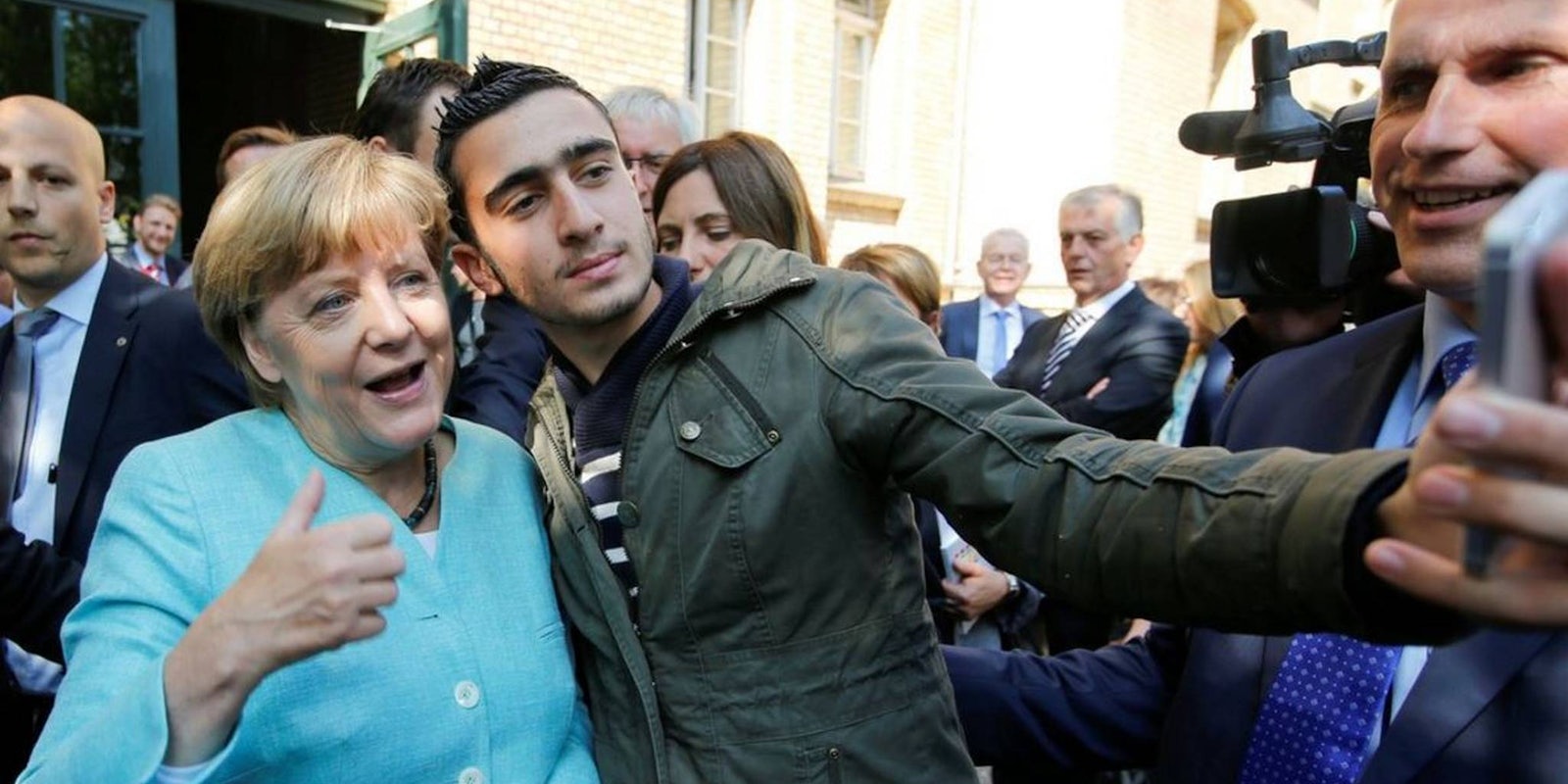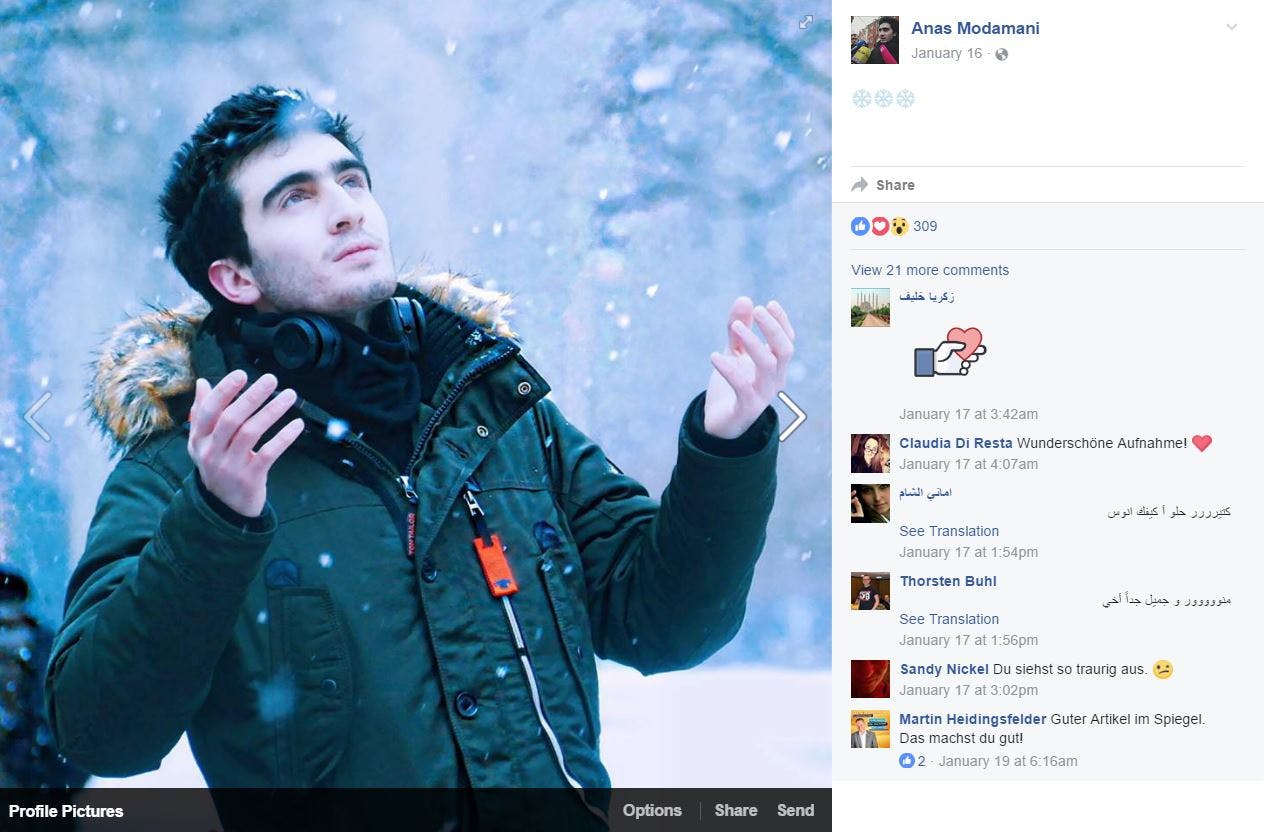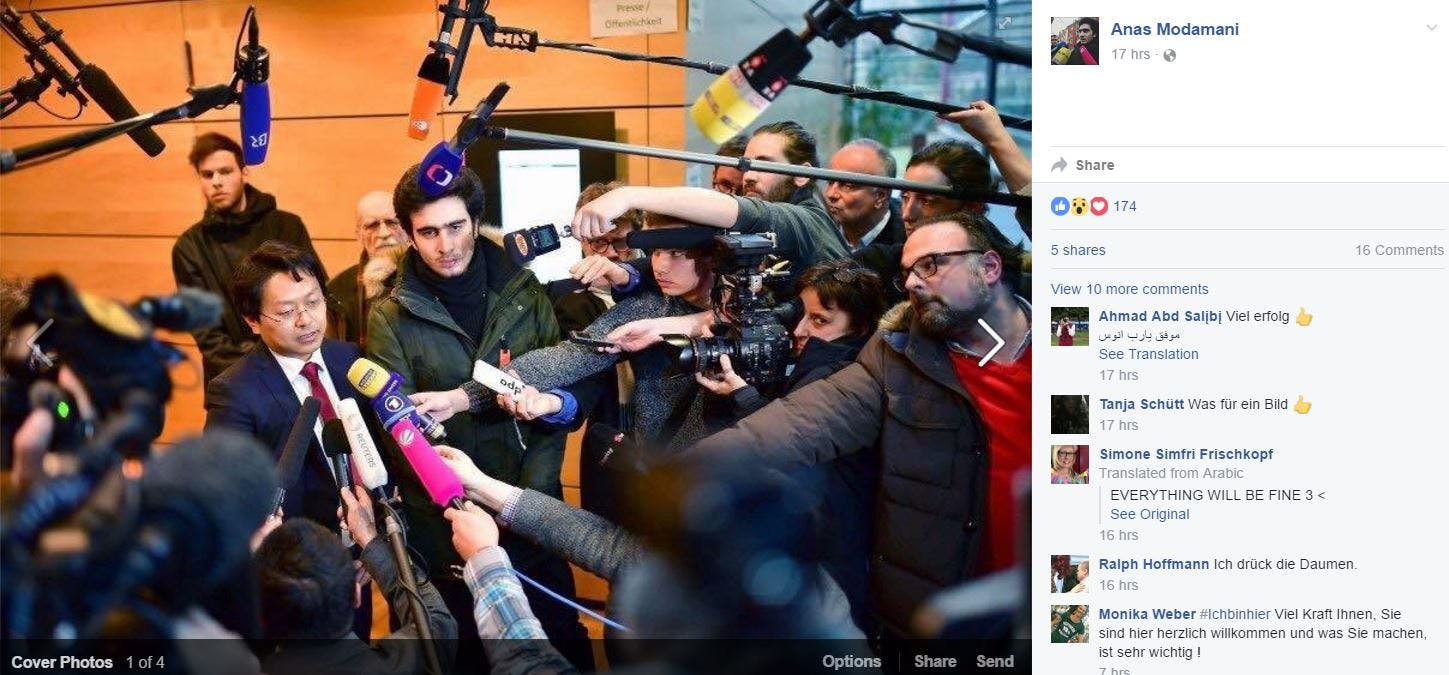A selfie of a 19-year-old Syrian with the chancellor of Germany grew to represent the country’s welcome embrace of refugees back in 2015. But it’s become a source for hatred and extremism.
The photo has been manipulated and repeatedly used to defame the young refugee as a terrorist. One involved in several of the attacks the country has faced over the past few years.
Those digitally altered images have spread like wildfire across the internet, and even forced Anas Modamani to hide out in a friend’s apartment until rumors of his involvement were debunked.
If not for that single selfie he took back in September 2015, with a woman he didn’t even recognize initially, Anas would be an excellent example of the vision Angela Merkel had all along: to take in those in need, and integrate them into German society.
The high school graduate fled a suburb of Damascus, a city that now lies in ruins, back in 2015. He stays with a German host family, and each morning takes language courses that the government offers refugees. In the afternoons, he works as a cashier at McDonald’s, and plans on applying to study at a university once he passes his next two German tests, according to Spiegel Online.
But Modamani knows in the back of his mind he may not be able to achieve his goals, all because of a single image he snapped with his smartphone.
Fighting discrimination and misappropriation is a losing battle, so Modamani says he’s taking the only precaution he can to prevent his image from being used against him. He’s suing Facebook, the most powerful social media site in the world, and has some shocking evidence to back him up.
The first time Modamani saw his image next to the word “terrorist” was during the attacks in Brussels in March 2016. The Facebook page Anonymous.Kollektiv, which has since been taken down, posted a link to a photo montage that paired Modamani’s selfie with an image from one of the Brussels terrorists, Najim Laachraoui. The tagline: “Dumb, dumber, Angela: Did Merkel take a selfie with one of the Brussels terrorists?”
The post went viral.
The far-right fringe in Germany likewise took advantage of the death of 12 people after a truck drove through a Christmas market in Berlin. Someone decided to superimpose Modamani onto the photo of the semi-truck used in the attack. That caption: “Merkel’s dead.”
And when five Syrians were arrested in Berlin for setting a homeless man on fire, it was Modamani’s face that was spread across the internet.
So the young man is teaming with Chan-jo Jun, a lawyer notorious for going after Facebook’s contentious “fake news” policies.
Jun is asking for a temporary injunction, obligating Facebook to make sure the image can no longer be shared and is automatically blocked. He argues his client will continue to be a victim of libel if nothing is done about “fake news.”
“I want peace in my life,” Modamani told reporters after the hearing, via the New York Times. “Not everyone believes that. Many people hate me, but all I did was take a selfie with Ms. Merkel.”
Yesterday, Jun and Facebook went to court. The lawyer argued Facebook had the ability to remove all images of Modamani tied to terrorism, but Facebook said it was up to the user to inform them of the material, and that it meets obligations outlined under German law, according to the New York Times. After hours of arguing, the judge suggested they settle with Facebook paying for damages.
Both sides rejected the judge’s notion.
Facebook has been vocal about going after “fake news,” a relatively recent epidemic that has already had a significant impact on the political landscape. But an experiment conducted by Hamburg-based publication Der Spiegel suggests it isn’t doing enough. Reporter Fabian Reinbold recently flagged a post that called Modamani a vile criminal, and alleged he was involved in the attack against the homeless man.
Facebook replied to his report the same day: “Although it does not violate our community standards, it was still right to inform us.”
That comment means Facebook believes defaming a 19-year-old is not against its rules. And so Modamani will continue his legal battle against Facebook. An official ruling is expected on March 3.
Update 5:59pm CT, March 8: Modamani lost his legal battle against Facebook. Judge Volkmar Seipel ruled there were no grounds for injunction because the social media company had not altered the content in question, and is therefore not legally responsible for its distribution, according to the New York Times.
After the ruling, Chan-jo Jun said “we lawyers” cannot help victims of libel and slander under current laws, but did say Modamani has been subjected to fewer threats since the case began.
The Justice Ministry of Germany will announce its guidelines for dealing with hate speech online in the coming weeks.
H/T New York Times


